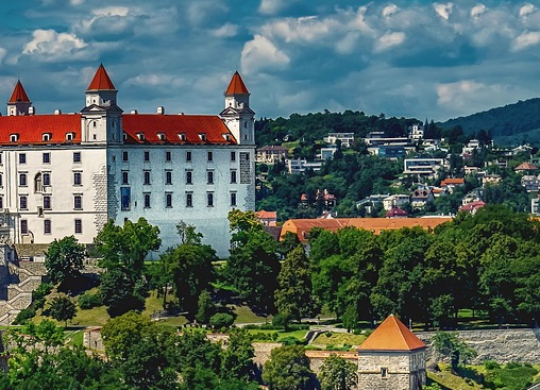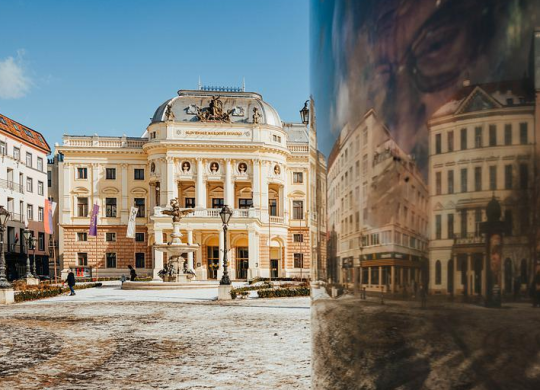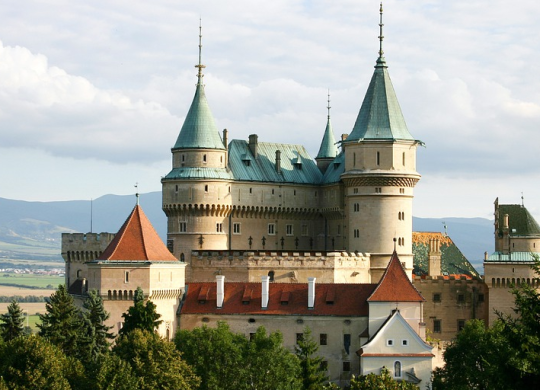Medicine and healthcare in Slovakia: health insurance and tourism

A small country in Eastern Europe is often not considered a place for treatment. And although the medical system of Slovakia has its peculiarities and nuances, this country is worth paying attention to. Especially in terms of the solid potential in the field of recreational medicine and rehabilitation.
General Information
In general, medicine in Slovakia is typical for most European countries. Particularly those of its eastern part, as:
• Options
The field of local medical services is represented by state and private institutions. The latter can be both — small clinics and huge medical centers that rent offices for docs’ private practice.
• Pharmacies
There are relatively few of them here, there are almost no 24/7 ones. Most meds can only be bought with a prescription the choice is quite limited. Therefore, if you take any medicines and are going to Slovakia, it is better to have a relevant supply of them (along with a prescription from a doctor, otherwise you will be stopped by border control).
• "Ambulance"
Locals complain that the arrival time of the "carriage" here is 4 minutes longer than the European average. But, generally, the arrival of the brigade 10-11 minutes after the call is a solid indicator for a small and not wealthy country in the east of the Old World.
• Specialists
Doctors mostly have a decent level of qualification, but there are very, very few of them here. The country is not very big, there are not many people and even fewer students at medical universities. Successful graduates often go to more developed European countries. But not only because of higher salaries: they are attracted by less workload, and a clearer operational and payment system.
Due to this fact getting an appointment with any doctor on the current or at least the next day is mission impossible. The minimum waiting period is one week, and the average is from 3 to 4 weeks.
• Equipment
The provision and condition of institutions here are not as good as in Germany or even in neighboring Austria. Yet the prices here are much lower too. In addition, Slovakia is defined by more advanced equipment than most post-Soviet countries. It presumes not only hi-tech large machines: small things like special devices for blood sampling are available almost everywhere and are widely used as the latest alternative to old Soviet technologies.
The interior and furnishing in clinics or hospitals often look a bit old. Usually, this is more common for state institutions: furniture there can be 20 years old, but it is functional and in a good condition. Almost every children's department and polyclinic have changing tables.
Of course, the modern level of common rooms and offices, equipment, administration, and other aspects may differ not only within the boundaries of one city but also within one medical center. But generally, Slovak medical institutions, even really old ones, are well-kept and tidy. And the level of comfort and service is higher than in most former Soviet states.
Peculiarities of medical care in Slovakia
• Appointment with the doctor depends on the institution. Somewhere it can be done online, in some places by phone, and also there can be the good old first come - first served option.
• If no prior appointment is available, next to each office of the medical institution will be a list. Each newly arrived patient writes his name and surname in it and the nurse calls visitors according to this list.
Note: it is customary to greet and say goodbye to people in line. Otherwise, you can be deemed as a rude and uncivilized person.
• A nurse here is not only a medical worker but also an administrative one. In addition to blood sampling and other small manipulations, the duties include queue management, assistance with doctor's appointments, registration of complaints, and analysis of records. This is aimed to simplify the life of doctors because due to excessive workloads and intensive schedules, they often can be quite nervous.
• You can get to several focused specialists without a referral. These are gynecologists, oculists, dermatologists, psychologists, and dentists. Yet it is difficult to find a good dentist in Slovakia. And it is even more difficult to have an appointment in a short period or due emergency. Therefore, it is better to treat the teeth either before the trip or elsewhere.
Medical Insurance
Slovaks used to strictly follow the schedule of preventive medical examinations and vaccinations and doctor's orders. The reason is mandatory health insurance and consequent dependence on health care services availability. In case of non-compliance, the insurance company may refuse to cover the costs of prevention and treatment. The logic is simple: if you do not want to take preventive measures and diagnose diseases in the early stages, pay from your pocket.
Thus local law reads that every citizen, resident, and guest of the Slovak Republic must have a health insurance policy. Such a policy should cover the provision of medical services in the territory of the country for 30,000 euros or more.
Without health insurance, it is impossible to even get a tourist visa to Slovakia. Therefore, if you are going to visit this picturesque place in Eastern Europe, you will have to get a med policy. The same applies to those who are planning to move here for work or residence: according to the law, a health insurance contract must be concluded no later than the third day after receiving a temporary residence permit.
If you are interested in avoiding additional complications with your health insurance or obtaining visas, you can contact us for help. Our agents will be happy to advise and help you with these aspects.
Medical tourism in Slovakia
Speaking of the tourist visa, it is worth noting that a large number of visitors come to Slovakia for treatment precisely. Former Czechoslovakia is still famous for its healing thermal springs and spas. But unlike the advertised Czech Republic, Slovakia is cheaper and calmer. Water recreation here is represented by 20 resort areas with modern medical centers, sanatoriums, and spas. Guests are welcomed throughout the year and assistance in strengthening immunity, restoring the body, removing the effects of stress, etc is offered.
In addition, Slovak health facilities offer effective therapy for diseases and disorders in the following areas:
• gynecology;
• musculoskeletal system;
• respiratory system;
• dermatology;
• heart and blood vessels.
Recommended articles
3 min
Work
Job in Slovakia for expats in 2024: work permit, job search and changes to migration legislation
Slovakia is known for its breathtaking scenery and historical sites, but you may not know that it is also home to a thriving market economy. Due to the low cost of living and job opportunities, the country offers good prospects for career growth. Find out what it takes to get a job here in 2024
23 Aug. 2024
More details3 min
Residence permit
A residence card or residence permit in Slovakia is a document that allows you to legally live, study and work in Europe. It is the main document for living in Slovakia. Find out more about the peculiarities of obtaining a residence permit and obtaining Slovak citizenship in 2024
30 Apr. 2024
More details5 min
Treatment
5 min
Treatment
All materials and articles are owned by VisitWorld.Today and are protected by international intellectual property regulations. When using materials, approval from VisitWorld.Today is required.